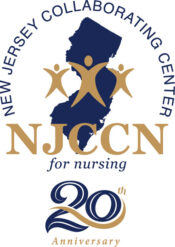Feb 14, 2017 | NJNI in the News, Nursing News
by NJNIs Co-Director Dr. Susan Salmond.
There are transformative changes occurring in healthcare for which nurses, because of their role, their education, and the respect they have earned, are well positioned to contribute to and lead. To be a major player in shaping these changes, nurses must understand the factors driving the change, the mandates for practice change, and the competencies (knowledge, skills, and attitudes) that will be needed for personal and systemwide success. This article discusses the driving factors leading to healthcare transformation and the role of the registered nurse (RN) in leading and being a fully contributing member of the interprofessional team as we shift from episodic, provider-based, fee-for-service care to team-based, patient-centered care across the continuum that provides seamless, affordable, and quality care. This new health paradigm requires the nurse to be a full partner in relentless efforts to achieve the triple aim of an improved patient experience of care (including quality and satisfaction), improved outcomes or health of populations, and a reduction in the per capita cost of healthcare.
Read the full article here:
Mar 10, 2016 | NJNI in the News, Nursing News
NJNI is pleased to announce that alumni Rahshida L. Atkins, PhD, MSN, APN, FNP-BC PhD Cohort 1 (2009) Rutgers School of Nursing has published several recent articles related to her PhD Dissertation Topic – A Theoretical Model of Depression in Black Single Mothers.
Publications:
Atkins, R. (2016). Coping with Depression in Black Single Mothers. Issues in Mental Health Nursing, 37, 1-10.
Atkins, R. (2016). Outcomes of Depression in Black Single Mothers. Clinical Nursing Research, 1-20. DOI: 10: 10.1177/1054773816633440
Atkins, R. (2015). Depression in Black single mothers: A test of a theoretical model. Western Journal of Nursing Research, 37, 6. 812-830.
Atkins, R (2014). Psychometric Review of Instruments Measuring Perceived Racism/Racial Discrimination: Review and Critique of Factor Analytic Techniques, International Journal of Health Services, 44, (4).
Atkins, R. (2014). Validation of the Center for Epidemiologic Studies Depression Scale in Black Single Mothers. Journal of Nursing Measurement, 22, 511-524.
Atkins, R. (2010). Self-efficacy and the promotion of health for depressed single mothers. Journal of Mental Health in Family Medicine, 7(2), 155-168
Jan 21, 2016 | Nursing News
Profile of New Jersey Health Initiative’s (NJHI) grantee Robert Wood Johnson University Hospital, from the 2014 New Paths to Professional Nursing cohort. This group of five grantees includes Caldwell University, Camden County College, Robert Wood Johnson University Hospital, Rutgers University – Camden, and Union County College. These grantees have developed programs to prepare front line health care paraprofessionals from underrepresented communities to enter into baccalaureate nursing programs.
View this five-minute video featuring one of the grantees, as she tells a compelling story of the hard work all of the New Paths grantees have been doing, and exemplifies the accomplishments they have achieved in the two short years of their grant projects. NJHI continues to find ways to promote the hard work and successes of all of their grantees.
Aug 6, 2015 | Nursing News, RWJF News
This policy brief showcases nurses’ roles in recognizing and addressing the social determinants of health, and their present-day contributions to prevention and health-promotion.
- Nurse innovators in the primary care arena are transforming communities by stepping outside the clinic to engage clients in healthy activities.
- Nurses are reducing the use of emergency care by helping vulnerable individuals manage their chronic conditions, receive appropriate care for non-emergency health events, and connect with preventive and social services.
- School nurses play a pivotal role in creating healthy school environments and bridging the gaps between education, health care, and public health.
- Nurses sit at the helm of roughly one-third of local and county health departments, and some of them have risen to become leaders at the state and national levels.
Read full policy brief here.

Jul 27, 2015 | NJ Action Coalition, NJNI in the News, Nursing News
NJNI alumna, Maria LoGrippo, was guided in her postdoctoral position at Rutgers University by Edna Cadmus, who provided her protégé with opportunities to lead, including LoGrippo’s current position as project director for an RWJF State Implementation Program grant.

See full article: Advancing_Health_July2015
Jul 23, 2015 | NJNI in the News, Nursing News
The number of patients with cancer is expected to rise 42% by 2025, according to the American Society of Clinical Oncology, but nurse practitioners trained for primary care sometimes lack oncology experience.
“They’re coming out of school with knowledge gaps,” said Tracy Krimmel, MSN, RN, AOCN, APRN-BC, nurse manager of adult oncology clinical services at the Rutgers Cancer Institute of New Jersey, New Brunswick.
Rutgers is addressing the issue by offering an Advanced Practice Nursing Fellowship program that gives NPs specialized training in cancer care.
Krimmel worked with Janet Gordils-Perez, MA, RN, ANP-BC, AOCNP, executive director/oncology nursing services at CINJ, and Renee Kurz, MSN, RN, FNP-BC, (NJNI Alumna) instructor at Rutgers University’s School of Nursing, to develop the program. In April, they gave a poster presentation at the Oncology Nursing Society’s 40th annual Congress, where nurses nationwide learned about the program’s outcomes and sustainability.
The goal of the program is to retain NPs at CINJ and improve their comfort level by preparing them to practice confidently and independently, and handle complex challenges specific to oncology patients, such as pain management and end-of-life issues.
Read full story here.

